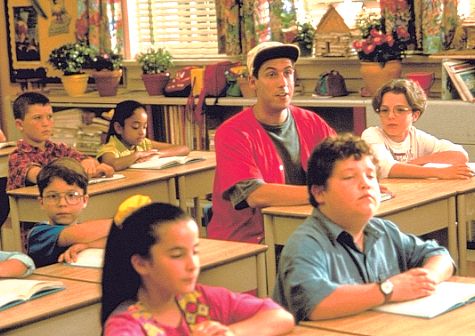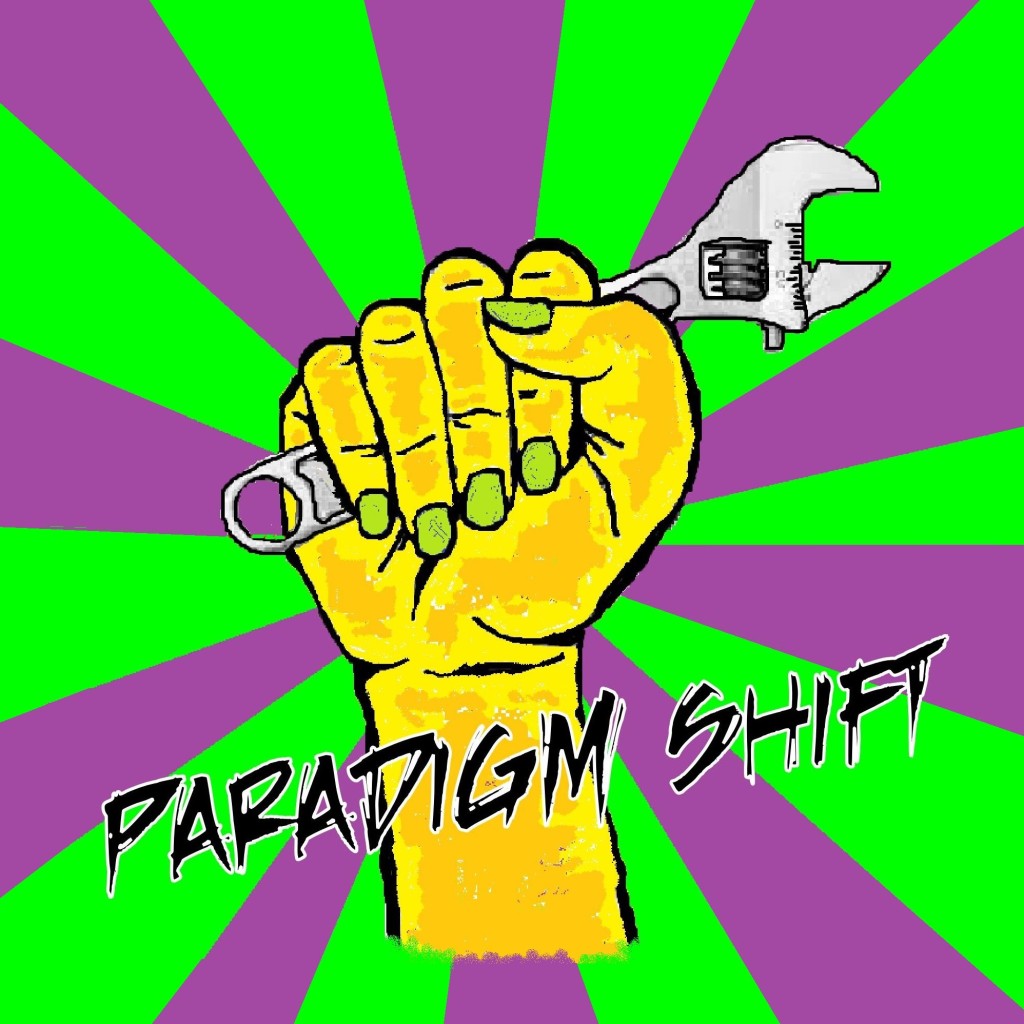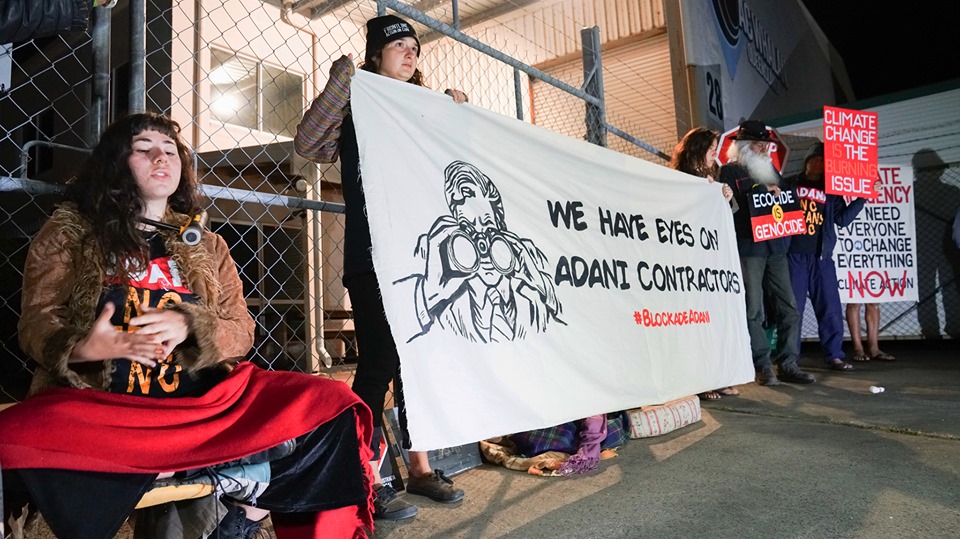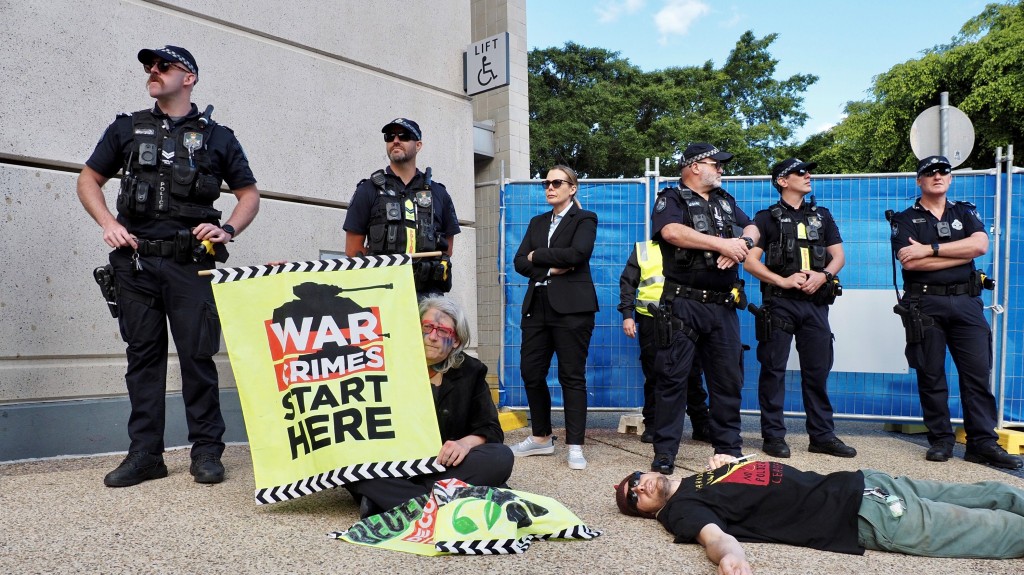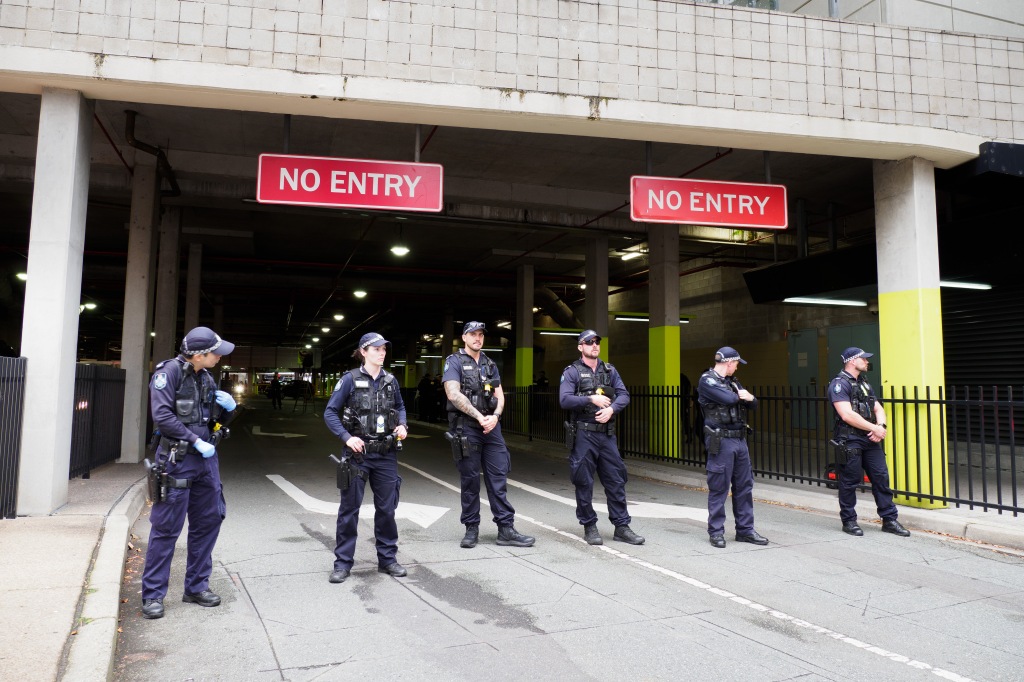Some time late last year (who remembers these things exactly?), I reached the milestone of 15 years spent using facebook. Coincidentally but I think providentially, at the same time my wife and I went to stay on a low tech farm for two months and I took probably the longest break I have ever had from scrolling and posting on there.
I didn’t miss it, but I do still think there are useful purposes that facebook and other social media platforms serve. What it did do is give me some time to think about it all – this thing I have always been critical of, yet have now spent thousands of hours over fifteen years using – and generating content and revenue for.
I don’t think facebook has gotten any better over that time, though it has certainly changed a lot about us users and how we relate to each other. Most of those changes have been side-effects of what is facebook’s main project – growing its own business and the wealth of its employees and shareholders.
We have had this ably demonstrated by the platform’s shifts in direction over the last couple of years. In 2021 Facebook made the dramatic announcement that it would be pivoting to create “the metaverse”. As far as I know, there was never any consultation with facebook’s users – those who literally generate all its content – whether any of us want “the metaverse”. In the end public disinterest seems to have finally defeated the tech frontier delusions of Mark Zuckerberg, but then the seeming shelving of the metaverse idea also occurred with no consultation. It should be noted that in March this year, as public discourse started to properly grapple with current and future threats created by Artificial Intelligence and the need to put limits on its development, Zuckerberg announced facebook’s next grand idea is to “create a new top-level product focused on generative AI”.
Both the failure of the proposed metaverse and the decline of Twitter/X since Elon Musk’s takeover showed that these supposed genius tech billionaires actually don’t know how best to run a communications platform that works for people. But that won’t stop them doing what they think will get them the most money and power; or their users being dragged along into it because the sheer scale of these platforms and the way they have steamrolled other pieces of social infrastructure means we are stuck with it.
For this reason, I have been thinking more seriously about an exit strategy. I honestly believe that for the sake of its own growth; facebook intentionally tries to maximise its control over our attention, our communication, our relationships and our own thoughts. If we don’t want to go along with that, at some point we will have to quit. But to leave, I think it’s worth thinking about what useful functions facebook gives us (the reasons we find it hard to leave!), and what other methods we have of achieving them. Ideally, we could leave facebook and feel that decision makes our life better off, not worse. This is going to be me sharing some of my thoughts.
Before we go any further, I will just note that facebook is the only social media platform I refer to here because it’s the only one I have personally used. From what I can tell, there would be some small differences and a lot of similarities when it comes to other platforms. I certainly have no desire to sign up to any other existing social media platform. Of course there are still alternatives being created (Mastodon being the most high profile example). But if it is your desire to, you could take the ideas I share here and translate them to whatever other platform you use – I’m sure there are plenty of similarities and probably a few differences. But for now, let’s talk about facebook.
THE GOOD
Here are some of what I think are the useful functions facebook has served, why it has managed to be as extraordinarily popular and durable as it has.
* Keeps us in vague contact with friends/acquaintances
For the first few years I had a facebook account, I was mostly inactive. It was when I started travelling that I really started using it. Though facebook is a very bad way to maintain close friendships it’s quite a good way to maintain acquaintanceships. There we see who’s got married, had a baby, moved town, quite often who has died, and random other scraps of info we glean to keep aware of people we rarely see.
* Allow public-facing parties to reach those interested in them
For musicians, artists, political groups and other public institutions; social media offered an unparalleled opportunity to bypass the gatekeepers of commercial media and connect with their potential audience. Originally this was by the process of having people “like” your page and see your posts, then as facebook became more algorithm-driven it could be seriously amplified by followers sharing your post and your reach expanding. Unfortunately, then facebook brought in sponsored posts (otherwise known as “paid advertising”) and your reach nosedived unless you paid for these posts. Still, most of us still connect with far more people running facebook pages than we would relying on traditional media channels.
* Acts as a news source
It’s not always the most nuanced or factual news coverage, but quite often facebook is the first point where we hear about newsworthy events. And for whole swathes of information that is not considered worthy of coverage by commercial media, social media is an incredibly useful way of getting passed around. Alternative news sources have existed in various forms for a long time, but for people of my generation (all of my involvement in radical political spaces has come since being a facebook user), it’s hard to imagine just how we would have got a lot of our information over the years if not for social media. Even for someone like me who is involved in creating independent media outside of online platforms, so much information for stories I have made has come from facebook, as has a lot of the reach for media I have created.
* Sharing content we find personally interesting
People always recommended books, music etc to their friends. But has there ever been a time when it was quite as easy as on social media? Well to be honest, the answer is yes and no. Facebook revolutionised the ability to share articles/audio/video and then immediately discuss it. In some ways it might have made it a bit too easy, meaning we don’t critically analyse things before sharing or responding. But more to the point, in recent years this function has quietly disappeared from facebook as the algorithm acts against any posts that are likely to take users off the platform and into other corners of the internet. Once upon a time I would have said this was what I liked facebook for, but to be honest I can hardly recall seeing any articles or videos on facebook that I found interesting in the last few years – despite the impeccable tastes of my friends! People who still want to use facebook for this now have to resort to “gaming the algorithm” eg. posting a selfie with a link to an article in the comments.
* Organising/discovering events
Who even has a paper calendar to write events on? Whether it’s private parties, artistic happenings or protest rallies; facebook these days is first port of call for both organising and discovering events. This aspect of facebook has been remarkably effective, the main problem being that the dominance of facebook has slowly killed off every other method we had of discovering and promoting events. With facebook’s powerful and mysterious algorithm now very influential in what information we see, this has come to mean facebook’s influence on our lives extends beyond the online realm and into the physical world.
* Messenger service
Who among us can say they have never lost all their phone numbers and had to use facebook messenger to contact their close friends? Messenger has made it much easier to contact old friends whose details may have changed, and generated the peculiar etiquette of sending SMS only to your more intimate friends and messenger to your acquaintances – even if you have their number.
* Local Community groups
I’ve never actually used these much, and many people who do find that like a lot of “community” things, it sounds better in theory than in practice once you insert the actual people! But the groups where people can post to other residents of their town or suburb about lost pets and various local matters certainly seem like a useful thing – especially when you consider the breakdown of physical gathering spaces and neighbourly connections that has been a gradual trend for a long time. In general, social media and the internet seems to be a de-localising force. These groups are one exception, and it could be worthwhile to think about what other ways there are of keeping local connections.
* “Shitposting” memes etc
It was only a decade or so ago that I first heard the word “meme” used and had to ask someone what it meant! Most memes are pure ephemera, read and then instantly forgotten. But this kind of creativity and humour has been one of the distinctive cultural contributions of the social media generation, and who can honestly say they would prefer life without memes?
So that’s a bit of a rough list of the things I appreciate about facebook. Notice I haven’t included the general “status updates” of small talk and photos of yourself/friends/food – even though this constitutes a large proportion of what actually goes on in the social media realm. This kind of small talk relating with others is a basic need for friendships and community; but I think we could already do this kind of thing perfectly well before facebook existed – in fact better when it was just us connecting with people we appreciate without facebook’s mediation. I think one of the great harms social media has done is co-opt the idea of “friendship” and apply it to the disembodied, infinitely vast, competitive sphere of the algorithmically controlled newsfeed. It is the curse of our times to be incredibly connected yet perpetually lonely, trying to fill our longing for human contact by typing into the void.
Now you’ve got me started. Well I guess while I’m going, let’s talk about some of the issues I have with facebook.
THE BAD
* We have no control or accountability
I already touched on this. Its not just that we are facebook’s customers, we are the ones who actually generate the product. And yet we are left at the whims of “The Algorithm”, an AI computer program whose main task is to work out what products to advertise to us and also happens to be one of the most powerful entities in the world.
* Facebook as a site for sharing information seems to be failing
As I mentioned earlier, what was once the primary reason to use facebook for many of us – sharing articles/songs/videos from the internet – has virtually disappeared as facebook has done everything in it power to hide external links and keep us using its platform. Some information does get through, but what about its quality? Under the steady influence of social media, we have become a people incredibly sure of things we know hardly anything about – losing our critical thinking faculties and slaves to our confirmation bias.
* Public discourse also seems to be failing
Early on in the life of social media, there would frequently be news stories about how norms of civility were failing online because of the lack of face to face empathy. That is still true, but is also dwarfed by everything we have seen since – increasing tribal divisions in society, mass public shaming becoming normalised and celebrated, tidal waves of abuse and harassment, increasing censorship and intolerance of differing ideas. Since the “fake news” campaigns of the US 2016 election, through Qanon and the covid culture wars, it has become increasingly clear that social media echo chambers allow people to exist on totally different planes of reality from each other. This has undoubtedly led to a more fractured society, but it is also a serious blow to the beliefs of people like myself – who think that in a society where the rich and connected have disproportionate power over how most of us are able to live, the best counter are mass movements of people working together for our common interests. Ask yourself – does that kind of thing seem more or less likely now than fifteen years ago?
* Social media has destroyed a lot of the other avenues for civil society.
It’s ten years now since the Arab Spring, the so-called twitter powered revolution. Since then, social media has been involved one way or another in every significant political movement; but that’s mostly because it’s involved one way or another in all of our lives. There were political movements and revolutions long before smartphone apps, and as I just said I’m not sure we have gained much politically. In some ways we have less avenues for communication than we did before – even face to face gatherings are often replaced by online events. Even the rest of the internet seems like a quaint idea compared to the immense power of vast online platforms. The convenience and ubiquity of facebook has given extraordinary power to a monolithic and opaque online platform that has little accountability and acts fundamentally in its own interests. I personally think it is slowly changing us ontologically – time spent in the disembodied realm of the online world leads us to believe that thoughts and ideas are more real than physical actions. That’s another story, but there’s no question that one of the reasons leaving facebook is hard is because it has swallowed up so many of the institutions that enable public and communal life.
* Even by capitalism’s standards, facebook is unethical
How does facebook actually make its billions of dollars? With no price tags on public display, the truth is that all their money comes from deals made far from public view. When these do occasionally sneak into our sights they can be pretty shocking.
Cast your mind back to 2017, and the Cambridge Analytica scandal broke. Facebook had sold users’ personal data to political parties for campaigning – undermining both personal privacy and democratic institutions. The so-called “facebook papers” leaked in 2021 showed how the company was aware of its role in disseminating false information but kept making decisions based on what is most profitable. In 2012 they famously conducted an experiment to see what the emotional responses would be to facebook intentionally doctoring users’ newsfeeds. Facebook also hoovers up the rights to everything posted on the site – content it did nothing to create.
All these are unethical, but many in the corporate world would say they are just good business. It’s facebook’s monopolising tendencies that fly in the face of free market principles and put facebook outside the realm of capitalist ethics. When the “hidden hand” of the market – the guiding principle of free-market economics – relies on there being healthy competition, you can’t have companies like facebook buying up competitors like Instagram and Whatsapp. Facebook has not only done this with impunity – they are almost certain to keep doing it. Earlier this year, when generative AI started to garner a lot of intention, facebook instantly announced it was going to start recruiting AI engineers to grow its business in that direction!
Everything we post on facebook is generating profits for a company that most definitely does not deserve our free labour.
* The state of always performing has destroyed our mental health
The last couple of decades we have lived through what has been called a “mental health epidemic”. Rates of depression, clinical anxiety and ADHD are skyrocketing. This has coincided with the introduction, spread and ubiquity of the smartphone and social media. Those two things could be unrelated, but I personally would be very surprised if that was the case. My belief is that the anxiety of always performing for a theoretical online audience (like permanent stage fright!), of having most of your social interactions ranked by a metric of likes and views, of theoretically being connected all the time but actually being alone, of experiencing low level addiction and everything that goes along with that; has decimated the basic necessities for mental wellbeing. And it’s not just me either – loads of studies have said this, including ones instigated by the social media companies themselves.
* It’s just not providing for my needs any more
None of the above issues are exactly new, but I have kept using facebook over the years because mostly I have found the good things outweighed the bad. But increasingly I just don’t feel this is the case. My notifications are filled with things that have nothing to do with me and I don’t care about. My newsfeed doesn’t provide me with the kind of news I am looking for. Even on the pages I run, I have little motivation to post because you have to do so according to the algorithm’s desires and I already feel like there’s too much online content and too little real life action. This is somewhat embarrassing to say, but I feel like a big part of the reason I still use facebook is because I no longer have the alternative sources of connection to my friends that could take its place. It’s when I got to that realisation that I really started thinking it was time to get off.
WHAT’S NEXT?
So I guess my question is: how can I leave facebook, but be in a position where my relationships and community are better off for me leaving, not worse off? This means thinking about alternatives we can create and put our energy into – things that hopefully can serve our social needs without turning those needs into profits for a company that doesn’t actually care about us or see our lives and communities as anything more than data to be harvested.
Because they are the attributes I care most about, I am going to focus on a few traits of facebook: maintaining friendships, sharing information with our networks and an avenue where community organisations can communicate with the public.
* Friendships
My time on facebook has taken me from my early 20’s to my mid 30’s. During this time one’s social situation generally changes a lot, though my generation have had social media thrown into the mix to add more change. It’s so bizarre thinking about the fact that people I haven’t seen since high school (fully half our lives ago) are still theoretically connected to me via social media.
One of the reasons it is hard for so many of us to leave social media is that we are often quite lonely, and what social interaction we have has been subsumed into the platform. It is a sobering realisation when you go a while without using facebook and notice that hardly anyone ever calls, texts or arranges to hang out just to chat and catch up. Hard as it is, in the end I would say this is more reason to quit. The illusion of a wide range of relationships while we each individually broadcast to the social media universe is not the same thing as edifying and mutually beneficial relationships.
In that way, I think one of the things we need if we are to do away with social media is a renewed effort to communicate in the old fashioned way – dinner parties, hangouts, kids play dates, phone calls, letters. It’s something I have traditionally not been that good at personally, and I think a lot of us are not that used to having to put in the kind of effort this requires when you can just get out your phone and start scrolling. But this is something about myself I want to change.
In terms of acquaintances, it’s hard to picture anything that could replace the role facebook currently plays. When humans were less transient and our relationships less dispersed, social gossip would have filled this role – I have spent time in communities where this is still the case. If you could somehow select an option that all you wanted was life updates and not all the other things that fill up your newsfeed, I would probably prefer that. But that’s half the point – we don’t get to choose what we see. In the end I don’t think liking a photo of someone’s new baby is really the same thing as being in a relationship. Maybe shedding that illusion will be a challenge to work harder to maintain real friendships that count.
* Sharing information
One aspect of friendship that facebook, for a while a least, seemed to enhance was sharing information with our networks. By this I mean the things that don’t necessarily come up in our everyday small talk – topics we are interested in, projects we have been working on, art we have created.
I personally think this is a great thing. I think it makes for better friendships and individuals. And we all consume a lot of media – isn’t it better if we are getting some of it from our friends and community rather than just the tastes of adverisment-funded corporate media? But the thing is, I just don’t think facebook does it any more.
At some point that damn algorithm decided that links to external sites did not keep us scrolling. Suddenly we stopped seeing them; written content was limited to a one paragraph status update or simplistic memes, the most common artistic medium the selfie. At one point my newsfeed was so full of videos I didn’t care about that I actually sent facebook a complaint email.
To some extent I think other social media platforms are better at sharing information than facebook – people share articles on twitter or reddit, and put their art on instagram. But I personally haven’t been tempted to sign up for more social media – I already feel like it takes up enough space in my life.
One of the symptoms of the newsfeed scroll is that we are all overburdened with information. Information has become worthless in a lot of ways – worthless because it only leads to more scrolling and not to any real life action, worthless because the disembodied realm of social media means anyone can post any irrational thing without pesky reality getting in the way of our beliefs, worthless because it becomes all supply and no demand and no one is deeply interested in anything, and worthless because the dominant medium of quickly written and ephemeral posts means that little thought goes into either creating or receiving.
Once again, I think the ideal alternative to this is actual face to face repeated meetings, where we try to learn together and work out how to apply it to our lives. I’m conscious though that many of us are time poor and disconnected, and that digital media is useful in this context.
The place where this thinking has led me to is email. It’s a very malleable medium, where there are a number of structures that communities could set up themselves, with no need for a commercial platform (besides ones’ own email provider) to mediate or control it. You could set up a discussion group, or a shared list of email addresses that everyone sends individual emails to, or anyone at any time could grab the addresses of their friends and start sending out their thoughts. There are also more structured platforms like substack that seem to be becoming more popular – probably in response to the limits of social media that I have already spoken about.
The obvious shortcoming of this thinking is the fact that every person I know already gets more emails than they have the time or desire to actually read. I think this is mostly an overflow of the information deluge I was criticising a couple of paragraphs ago. If we were to withdraw our attention from social media platforms, we quite likely would dedicate a bit more time and interest to our inbox.
But key to thinking about this is that I think changing medium should come with a change in how we think about information. I am the kind of person whose email ends up on the contact lists of all kinds of political groups and charities. As a result I generally receive dozens of emails a day, most of which I delete without reading. Periodically I do a cull, where I unsubscribe from basically all of them and start again. So much for the glorious communication revolution hey?
Part of the culpability for this situation I attribute to social media, with its emphasis on short but plentiful grabs that say nothing much. When facebook changed to basically force pages to pay for advertising, many groups instead focused on email – but they did so without really changing the content of their posts.
The response I would like to see is a qualitative change in what we communicate. I am imagining that rather than churning out numerous missives which we have not put much effort into, we instead store it all up for one bigger, more curated email. It could look like anything, but I’m imagining a personal email could give a few life updates, topics we have been thinking about (and where that thinking has led us), share some links we have found interesting, art/craft we have been creating if we are so inclined, maybe what music/books/films we have been enjoying.
If I received that from a friend, I can imagine not only making the effort to read it, but even looking forward to them arriving in my inbox from friends who are making them regularly. Imagine that! It could be like that experience none of us from the social media generation can even contemplate – the trip to the mailbox full of anticipation for what letters we might have received.
There are a couple of other issues I can think of: one is that if we were to use a mail platform to send, it may well end up in the spam folders of our intended recipients. Some email providers also have procedures in place to stop anyone sending emails to large list of recipients. These are a couple of logistical things, which if we tried hard enough probably aren’t impossible to get around.
Another issue is that this kind of medium offers only an intense level of engagement. Emails of the kind I just suggested would take a bit of effort to create, and it may well turn out that not everybody wants to hear that much info from their friends. We would not have the kind of casual contact facebook provides. That would be a loss, but to me that is kind of the point.
Similarly, we would not have the kind of reach we currently do for the info we share. I personally have over 2000 facebook friends, and the “share” function offers the possibility of reaching many more, but I do not envisage there are that many people wanting to read emails I might send.
But maybe that’s ok. Maybe we never actually communicated with all those people in any real tangible way, but we have been carrying the forlorn hope that we could. Email would most likely make for a more human-sized communication; on a scale comparable to the number of people we can actually maintain real relationship with. Who knows? This might actually be a gain if we find we have better communication with that smaller number.
It would also be a slower format without the instant spreading and live streaming of facebook. Similarly, I’m not sure this is the same loss in practice as it is in theory. If we are just sitting at home or somewhere else looking at our phone, exactly how much difference does it make if we see something as it is happening or a few days later? We have been convinced by the social media hype machine that instant is a virtue, but that doesn’t mean it actually is.
Of course there are other ways to communicate with friends. A couple that I can think of (anachronisms from another era though they may be), that I am already involved in making, are blogs and zines. Zines in particular are something I am hoping to put more effort into. Giving out a paper zine is quite a different exchange to posting something on facebook – I have always felt such a kinship to others who make zines, even if the subject matter is very different. Those paper publications seem like artefacts to be treasured; the difference between that and the emptiness of social media interaction is something I really want to highlight.
I don’t know if all that made a convincing argument, but regardless I am personally thinking seriously about setting up an email list in an attempt to share in a more conscientious way with my friends without an unethical corporation profiting off our interactions. So I guess this is an invitation to get in touch if you would like to go on the list!
* INDEPENDENT MEDIA
Remember those heady days when social media was going to transform politics? How cringeworthy those stories seem now with hindsight. The Arab Spring hasn’t really turned out that great over the long haul, but there was always something a bit awry about Western news reports that attributed those political movements not to the organising capabilities of actual Arab peoples, but instead to American internet platforms.
That same year, many of us actually trying to organise radical political movements were grappling with what it actually meant to be part of political events that grew out of rapid social media growth – the crazy mix of political ideas thrown together that was the “Occupy” encampments. But mostly, Occupy was a layover from a previous era of organising with its tactics of mass physical gatherings and claiming of public space. The next year we got a better insight of what online political activism would look like in the long term – the “Kony 2012” video being shared by millions of people with no theory of how to actually stop the phenomenon of child soldiers in Uganda and no real inclination to do anything about it.
Social media has gone on to have an immense influence on how we do political organising, but it’s very hard to quantify if that has led to improvements. I think it has certainly increased the amount of political discourse, but that doesn’t necessarily translate into tangible political action or positive change. Meanwhile the medium of social media – finding ways to monetise every human interaction, enriching private capital while paying low wages, and obsessed with the hierarchies of celebrity culture – has only acted to entrench the capitalist status quo.
I have thought for a long time that movements for social change need to wean ourselves off social media. I have always justified our complicity with the philosophy of “people are on social media, therefore so should we be”. But I think the problem is that so many other facets of our movements have died out, meaning that we are only on social media – just one more plank in building the dominance of these platforms.
For effective social movements we need to get off our screens and out meeting people in physical spaces and shared projects. But we also need some kind of mass communication to reach beyond our already existing networks. I really believe that independent media is a vital part of the ecosystem of social change. And it seems like online communication is only going to become more dominant in the future, so for sharing information we need to work out what good use of online technology looks like.
I think one thing that should be prioritised is an online presence that is separate from social media platforms. We don’t want our communication to be dependent on the whims and priorities of mega rich corporate social media companies, nor do we especially want our efforts to go further towards building the profits and social control of these platforms. As well as a freedom in the design and content of the site, this also means our information is accessible to everybody with an internet connection, without needing to sign up for an account. It also means that as online platforms change (eg. Facebook being left behind for tiktok by younger users, Elon Musk ruining twitter, etc.), we can just keep concentrating on what we do well rather than having to change everything.
If we want to still use big platforms, at least for now there is some potential for us to do both by sharing content on social media. But I for one really think we should be looking to build alternatives and shed our dependence on social media.
When I think about alternative models, I can’t seem to do much better than look back into the past. To a period just before the rise of social media and smartphones, to a time when the revolutionary online platform people talked about was Indymedia.
As I understand it, Indymedia was basically what we now call a “wiki” – people submitted articles/news/events and a volunteer collective of editors would approve the posts. It is famously linked to the big anti-globalisation protests of the early 2000’s, though it existed for a long time and was used by many different groups and people.
I think there are advantages to using this kind of format. One is that the wiki format is common and proven to be sustainable through sites like wikipedia. Another is that hopefully the format can spread around some of the workload involved in making a project like this happen – it would require a few heavily committed people to hold it all together, but at least in theory the content generation could be shared around the entire community that uses the site.
Here’s a possible model: a central website has a few categories – news, analysis, multimedia, community calendar. There could of course be more. There is then a webform where people and groups can upload their own contributions – media releases and updates, articles, videos, podcasts, events for the calendar. There would be a simple process for a central collective member to approve or decline a submission based on whether it meets the site’s editorial guidelines (which would also be publicly displayed). I’m imagining that it would be somewhat localised (which would be the only way to make something like an events calendar workable), but there could exist a network of these sites that could share content.
If this were to function well, I think there could also be a hard copy element, where periodically a paper newsletter is printed with highlights from the website which can then be distributed to locations around town.
At the very least, I think an interactive calendar of events happening would be a very worthwhile addition to our ability to create cultural alternatives to the corporate behemoth. A few years ago I approached a friend and suggested we start a weekly email of radical Brisbane events. It wasn’t that much work, and managed to run every week for a couple of years until I left town for a while. There was a lot of appreciation, and even a couple of people saying they felt like they could actually quit facebook now. The dependence we have built on facebook for promoting events is shocking and certainly harmful to our efforts of creating interesting and welcoming subcultures.
There are of course a few obstacles I can envision for a project like this. One is that this project has basically already been tried once in recent history and it was pretty much killed off by social media then. I must admit that I haven’t heard masses of people crying out for an indymedia revival, so even though I personally think it would be good, it may be that there just isn’t demand for this kind of thing. Many other projects have been attempted and failed though and many more will in the future. So I guess if it falls apart through disinterest that would be ok.
Another hurdle is that any project like this requires a fair bit of volunteer labour, both in the collective and from the community. People do not always have a lot of time and energy for these kind of things, especially over a long period of time. But the format I have suggested I think at least spreads the workload round a bit. If we could capture a fraction of the time and energy people currently devote to social media that would go a long way towards sustaining the project. Possibly there could be some kind of paid element through a grant or crowdfunding, but my own feeling is that money in these contexts often creates more problems than it solves – so I think that would have to be a carefully thought through decision. In the end, work can be rewarding and energising as well as well as tiring and depleting, and hopefully if the project took off that would be its own reward.
Similarly, the project would require some kind of group to run it – one that purely for efficiency I think would have to be a somewhat closed collective. This could create issues with hierarchy and gatekeeping, but more pertinent I think are the inevitable interpersonal conflicts that arise when a group of people get together to work on a political (or any!) project. From what I’ve heard, this was at times an issue in old indymedia collectives. What can you say? There is no perfect solution to interpersonal conflict, but I do at least hope that the dynamic of a group working together towards a tangible shared project can lead to less arguments than the disembodied realm of social media politics – where ideas mean everything and relationships nothing. Who knows? Maybe even working together could be a good thing, where the whole is greater than the sum of the parts and each individual is blessed by the working relationships and friendships.
I certainly have no guarantee that the above format would work as a successful website, but I am certain about the importance of building independent non-profit media and of trying to rebuild those institutions outside of corporate social media. I also think it’s important to ground this media in face to face community, especially as we face a media world which generative AI is possibly about to take into the realm of the surreal. I personally have been involved with Brisbane community radio station 4ZZZ for a decade now and will continue to for the foreseeable future. I love radio and 4ZZZ, but I also think our society’s media consumption is overwhelmingly digital and we need to be building online spaces that suit our needs as alternative media producers and audiences. I intend to try to support anyone else who is attempting to do radical media and think that doing these things co-operatively gives us a much greater chance of surviving and thriving.
SIGNING OUT
Congratulations on (nearly) making it to the end of this long article! While there is some analysis here, my rationale for writing this was not to generate another theoretical treatise. I personally genuinely want to get off social media and want to at least attempt the alternatives I have suggested here. To that end, if you are also keen for these things are have other ideas on the same subject, I want to hear from you. Please feel free to get in contact with me and we can talk about ideas and projects. I hope for anyone who has read this that it has stimulated some contemplation about how things are and how they could be – to me the effort of writing this would be vindicated if it got more of us thinking deeply and discussing these topics.
The world is an amazing place full of extraordinary potential, but our ability to see new possibilities is limited further by every moment we spend within the parameters of corporate-owned social media. But these platforms don’t own us (yet), so let’s get together to create the kind of social networks and media we really want to see. See you in the real world!

